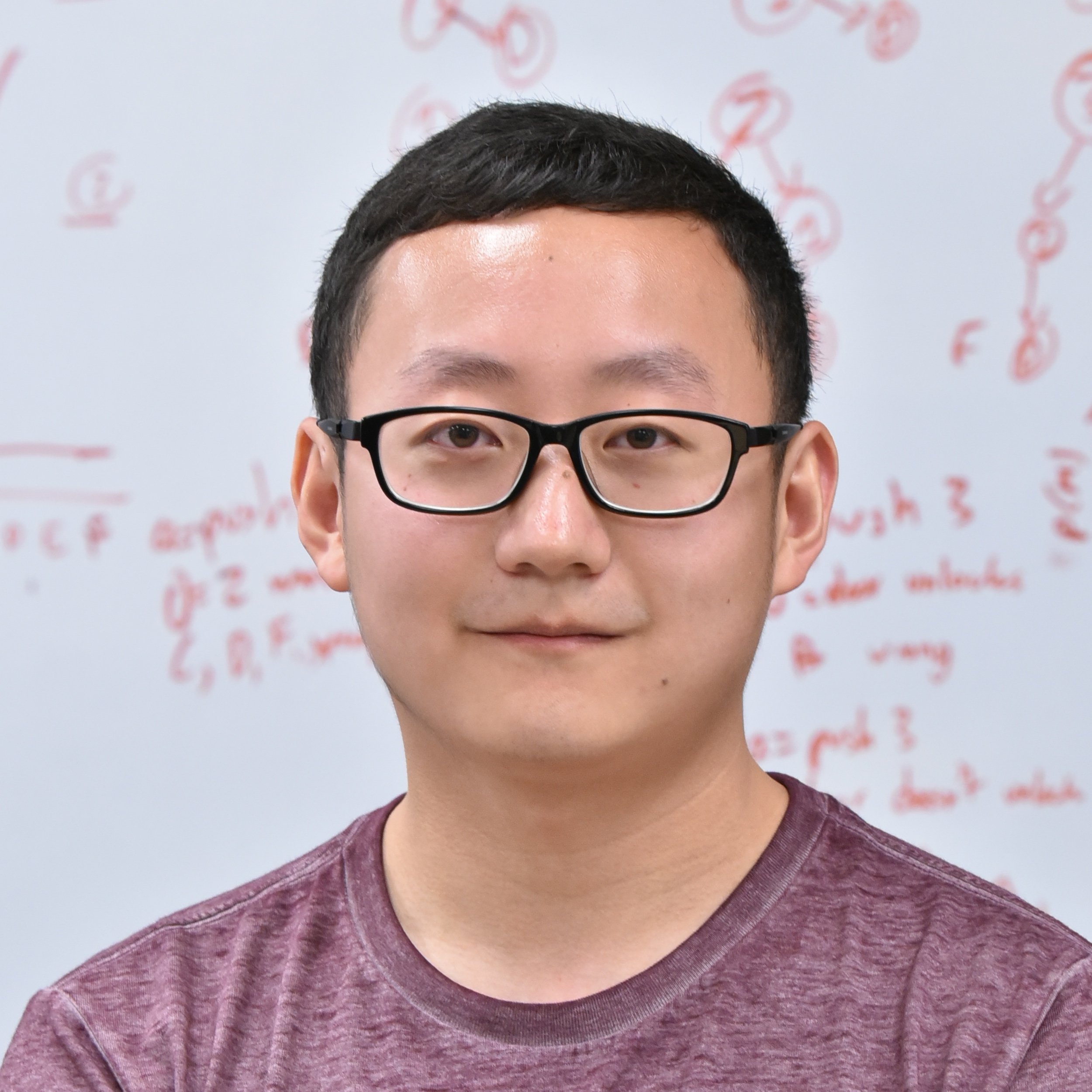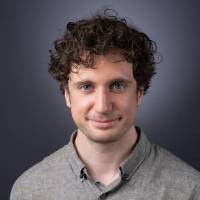Join us for CCC 2025
If you're looking for opportunities to share your research on the intersection of cognition, AI, and neuroscience, or if you want to connect with peers, network with potential collaborators, and engage with new ideas, join us for the Computation and Cognition Conference in Halifax on August 15 2025.
The conference provides a forum for researchers in cognitive science, neuroscience, and AI, focused on understanding the computations that underlie behavior. Our goal is to deepen and strengthen the interactions between our disciplines, and to discover the ways in which each research community can benefit from the successes of others.
We encourage participation from engineers, experimentalists and theoreticians investigating brain and behaviour in humans and animals. Our discussions will cover research in the following areas, as well as many others:
- Understanding commonalities and differences between biological and AI systems
- Using techniques from ML and AI to model brain and behaviors, and building biologically-inspired AI
- Understanding how people reason in real-world tasks through the lens of computation
- Measuring and expanding the representational competencies of modern AI systems
- Mechanistic interpretability of deep neural network models and the science of deep learning
- Revealing principles of brain connectivity and dynamics at multiple scales
- Using psychophysical techniques to relate sensory inputs to behavioral responses
- Developing cognitive- or neural-level models of perception, cognition, emotion, and action
- Representation learning and representational alignment
We will have an exciting lineup of invited speakers, a poster session for students and faculty, and several parallel workshops. This event is open to all, whether you’d like to present a poster, network, or simply attend and enjoy the conversations. We encourage participation from researchers at all stages of their career from faculty to undergraduates, and from across a variety of methodologies - including engineers, experimentalists and theoreticians -- investigating brain and behavior in humans, animals, and machines. Everyone is invited to join us and be a part of this exciting interdisciplinary exchange!
Registration is free.
Call for Posters
Poster spots are assigned on a first-come, first-served basis, with a set number reserved per CS and Psychology. Confirmed presenters will receive further details. To help up plan and allocate space for your posters, we need to have your poster abstract in advance. There are two Best Poster Awards, chosen by the organizing committee.
Poster Dimensions: posters can be horizontal or vertical, with maximum dimentions of 30x40 or 40x30 inches.
- June 15, 2025 Poster abstract submission opens
- August 1, 2025 Poster abstract submission deadline
The poster session will be held on August 15, 9:00 AM - 5:00 PM
Poster submission is now open. Registration is free.
Invited Speakers

Dr. Tianmin Shu
Johns Hopkins University
Tianmin Shu is an Assistant Professor in the Department of Computer Science at Johns Hopkins University, with a secondary appointment in the Department of Cognitive Science. His research advances human-centered AI by integrating machine learning, RL, and social psychology to develop engineering machine social intelligence. His work encompasses areas such as model-based Theory of Mind reasoning, social scene understanding, neurosymbolic methods, and social learning. He completed his Ph.D. in Statistics at University of California, Los Angeles.

Dr. Stephanie Denison
University of Waterloo
Stephanie Denison is a Professor of Psychology at the University of Waterloo. Dr. Denison primarily studies infant and child development from a cognitive science perspective, examining questions about the origins of the mind and the domain-general statistical learning mechanisms that young learners have access to, as well as how those interact with domain-specific learning mechanisms. She also examines the development of heuristics and biases, and how algorithmic strategies for updating information (such as variants of simple algorithms like “win-stay, lose-shift”) characterize children’s belief revision over time.

Dr. Abraham Nunes
Dalhousie University
Abraham Nunes is an Assistant Professor in Psychiatry at Dalhousie University and director of the Computational Psychiatry Laboratory. He uses computational modeling and machine learning to study mental illness, particularly mood disorders. His mathematical work on heterogeneity spans ecology, economics, statistics, and statistical physics. Dr. Nunes is also a practicing psychiatrist and leads the ketamine therapy program at the QEII mood disorders clinic.

Dr. Kevin Ellis
Cornell University
Kevin Ellis is an Assistant Professor in the Computer Science Department at Cornell University. His research is focused on Neuro-Symbolic AI, Program Synthesis, and Cognitive Science, and integrates symbolic reasoning with neural networks to develop human-like learning from limited data in AI. Dr. Ellis completed his Ph.D. at MIT, where he was advised by Dr. Josh Tenenbaum and Dr. Armando Solar-Lezama. He is perhaps best known for the Dreamcoder paper.
Conference Schedule
The Computation and Cognition Conference 2025 will take place on August 15, 2025, at the Kenneth C. Rowe Management Building, Dalhousie University. Below is the preliminary schedule. All times are in Atlantic Daylight Time (ADT).
| Time | Event | Speaker/Description |
|---|---|---|
| 8:30 AM - 9:00 AM | Breakfast | Provided on-site |
| 9:00 AM - 9:30 AM | Opening Remarks | Organizers |
| 9:30 AM - 10:30 AM | Keynote: "Computational Models of Mental Illness: How Can we Achieve Clinical Utility?" | Dr. Abraham Nunes, Assistant Professor, Department of Psychiatry and Faculty of Computer Science, Dalhousie University |
| 10:30 AM - 11:00 AM | Coffee Break | Networking |
| 11:00 AM - 12:00 PM | Keynote: "Children's use of probability in social inferences" | Dr. Stephanie Denison, Professor and Associate Chair Graduate Affairs, Department of Psychology, University of Waterloo |
| 12:00 PM - 1:30 PM | Lunch Break | Provided on-site |
| 1:30 PM - 2:30 PM | Keynote: "Scaling Model-based Social Reasoning" | Dr. Tianmin Shu, Director, Social Cognitive AI Lab, and Assistant Professor, Department of Computer Science, Johns Hopkins University |
| 2:30 PM - 3:00 PM | Coffee Break | Networking |
| 3:00 PM - 4:00 PM | Keynote: TBD (Virtual) | Dr. Kevin Ellis, Assistant Professor, Department of Computer Science, Cornell University |
| 4:00 PM - 5:00 PM | Poster and Networking Session | Student and faculty posters |
| 5:30 PM - 8:00 PM | Post-Conference Reception | Contact organisers for location, as places are limited. Please arrive by 6PM. |
Venue
Kenneth C. Rowe Management Building,
Dalhousie University,
Halifax, Nova Scotia
Organisers
Marta Kryven, Assistant Professor of Computer Science, Psychology and Neuroscience (marta.kryven@dal.ca)
Aaron Newman, Professor and Chair, Psychology and Neuroscience, Computer Science, Psychiatry, Surgery, Pediatrics
Raymond Klein, Professor Emeritus, Psychology and Neuroscience, Computer Science
Simal Dolek, Graduate Student, Psychology and Neuroscience (simal.dolek@dal.ca)
Ryan McCarthy, Event Coordinator, AI Institute
Program Committee
Xuemin Yu, Graduate Student, Computer Science
Cameron Calder, Graduate Student, Medical Neuroscience
Robie Gonzales, Graduate Student, Computer Science
Max Mascini, Research Assistant, Psychology and Neuroscience
Ciaran Lawless, Research Assistant, Computer Science, Psychology and Neuroscience
Sponsors
Dalhousie University, Department of Psychology and Neuroscience
Dalhousie University, Faculty of Computer Science
Dalhousie University, President's Office
Dalhousie University, AI Institute